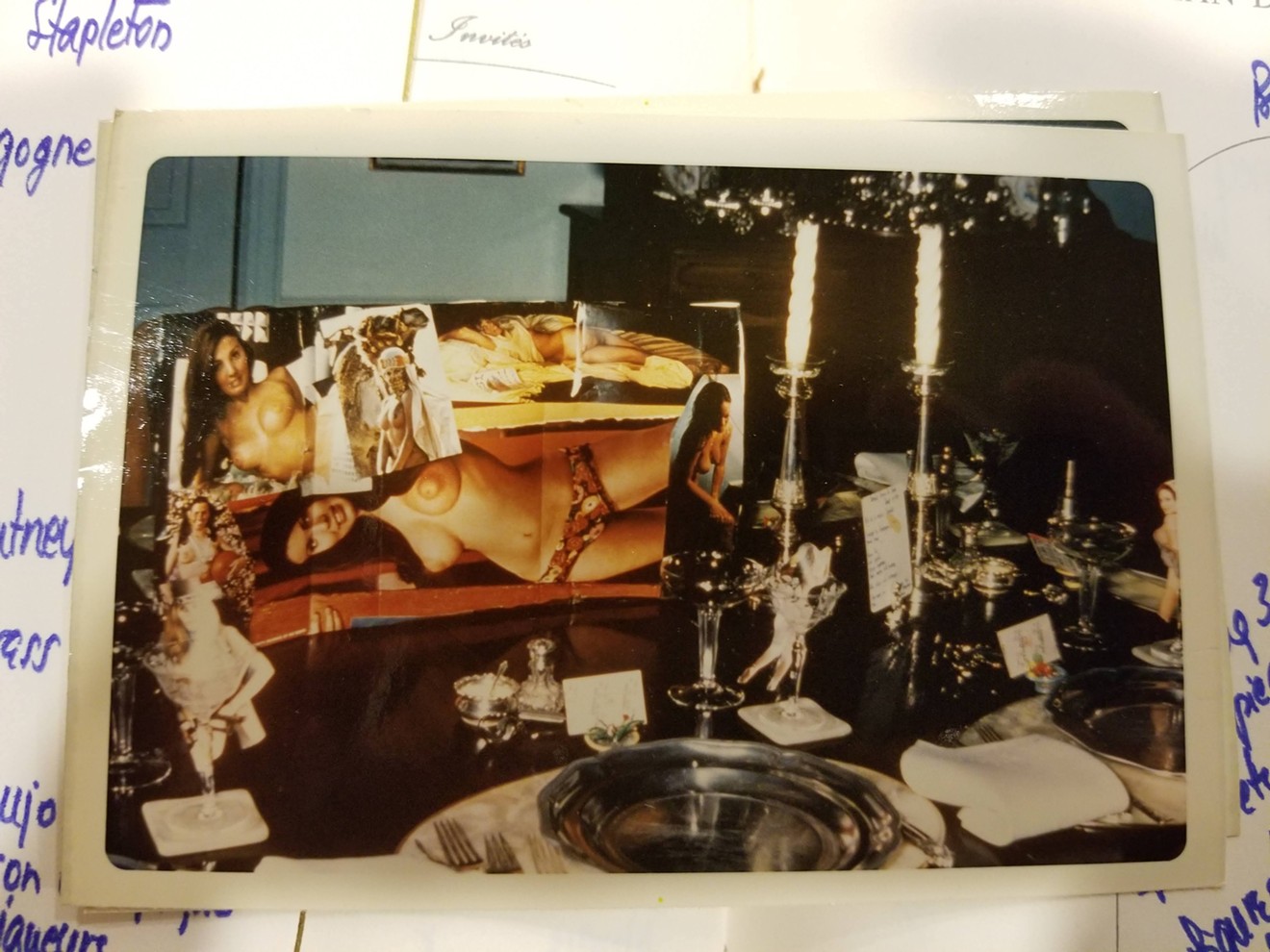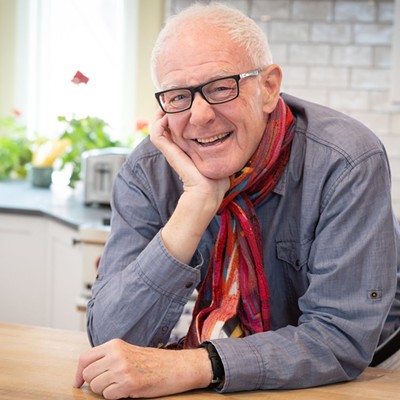Katharine Hall Stapleton was born on October 29, 1919, in Kansas City, Missouri, and died in Denver — where she was known always as “Katie” — one day shy of her 100th birthday. Although obituaries tag her as a “longtime Denver activist,” to me and most Denverites of my generation, Stapleton was known always for food: She wrote about it (as the editor of numerous cookbooks and as a columnist for the Denver Post), talked about it (on local radio and television), and cooked a lot of it (as hostess of countless dinners at her home with husband Ben Stapleton Jr., to whom she was married for 51 years. Yes, she's part of that Stapleton family, and was the grandmother of Walker.).
To the University of Denver’s Special Collections and Archives (which already had an impressive cookbook collection), she bequeathed what people call her “papers,” but which are — at a mere cursory go-over — reams of manuscripts for those cookbooks; hundreds of menus for the various dinners at the Stapleton home, on each page copious notations like a spilled box of rice; pre-VHS (“U-Matic”) tapes of television appearances; beyond-yellowing clips of hundreds of newspaper columns and cooking book critiques; 3x5s with comments and remembrances on her many fans and readers; menus from restaurants (mostly European, mostly French) collected from her travels, both as spouse and as tour leader; thousands (it must be thousands) of her own and collected recipes from the 1970s through the 1990s; wine and food magazines, posters, cookbooks by others, audio cassette tapes, scrapbooks, promotional photos, and even more recipes.
I knew her from that world of food, one that I inhabited hereabouts in the 1980s and 1990s myself (and have returned to after a fourteen-year stint in Chicago). We ran into each other at food and wine events, and I recall seeing her at an Alliance Francaise Bastille Day function during the time that her husband was Denver’s Consul de France. I remember her as — the word is a compliment here — feisty: sparky of manner, speaking her mind, flitting from one encounter or contact to another like a moth to a flame.
Because of her short stature, she looked up to the world — but she really did look up to it, because she was going to notice it, whoever it was or whatever it was, because she wanted to make a mark on it. Which she did, for a long time, and along many routes.
Going through her “papers” is a treat, and very reflective of the person. She (along with other columnists such as Donna Hamilton and Judy Ross) reviewed hundreds of newly published cookbooks for her 1970s-’80s Denver Post column “Cookbook Corner.” Perhaps owing simply to what she received through publishers and the postal service, she covered everything culinary, from the ascendant Julia Child to all manner of what usually is called “ethnic” cooking (for her, heavy on the French, cautious on the Italian, open to the Asian), and with a sympathetic eye to the thinking in cookbooks that propounded new ideas on nutrition and healthy eating or new kitchen appliances, such as processors or microwave ovens.
She gushed over some authors (Bert Greene’s “divine recipes," such as his “sinful, devastating chocolate cake”) even while she might turn the pen into a knife on the same (Greene’s “endless pages of drivel”). Or, on the one hand, the praise (such as “this book will steer you on a steady course”) for Two Burners and an Ice Chest, by Phyllis Bultmann, a cookbook for campers, tempered, on the other hand, by a good dig (“the recipes are neither thrilling or imaginative”).
She was keen to review other cities’ cookbooks midwifed by that town’s Junior League, for she, like them, was contributor to or editor of recipes for this town’s several Junior League cookbooks, such as Colorado Cache and Crème de Colorado. And she was not afraid to call out breaches of Junior League etiquette in the same when, for example, Nashville’s cookbook (shuddah!) used brand names in some of its recipes' list of ingredients.
Her 1970s column in the Denver Post, “On the Front Burner” — cheek by jowl to “Dear Abby” on what then were called “the women’s pages" — is illustrative of all the food and cooking of the era, from its “Heloise Hints”-type tips to minutely written recipes for home cooking, a lot of it French, Stapleton’s obvious kitchen keenness.
Her tendances françaises are gleefully apparent in the copious notes she made to her menu-planning books,
the organization manuals for those dozens and dozens of meals that she and her husband hosted at their home. Just three menus from March 1970 are like a row of bonbons: Frenchwines (always Lanson Champagne; very commonly Beaujolais for red; and always finishing with “les liqueurs”); foods listed in either English or French (“Boston lettuce” one day, “la laitue de Boston” the next); instructions on napery, utensils and serving ware; and carefully worked out table seating for all the guests.
The table seating for one meal, on March 14, 1970: “A Bachelor Dinner for C___,” needn’t have bothered with “boy-girl-boy"; it was all bro, down to the “old race horse tickets for place cards” and photos of “nude figures (with bosoms) & leggy if possible Scotch-taped on each wine glass” and — wouldn’t you know it? — Polaroids of the latter, nekkid as all git out, paper-clipped to this day to that page in the book.
In one of her “Front Burner” columns, in the “Tips” section, talking about “store-bought [dried] herbs,” Stapleton wrote that “you should check on them, from time to time. Just like us, they wear out.”
Just like only some of us, Katie, just like only some of us.
[
{
"name": "Air - MediumRectangle - Inline Content - Mobile Display Size",
"component": "12017618",
"insertPoint": "2",
"requiredCountToDisplay": "2"
},{
"name": "Editor Picks",
"component": "17242653",
"insertPoint": "4",
"requiredCountToDisplay": "1"
},{
"name": "Inline Links",
"component": "18838239",
"insertPoint": "8th",
"startingPoint": 8,
"requiredCountToDisplay": "7",
"maxInsertions": 25
},{
"name": "Air - MediumRectangle - Combo - Inline Content",
"component": "17261320",
"insertPoint": "8th",
"startingPoint": 8,
"requiredCountToDisplay": "7",
"maxInsertions": 25
},{
"name": "Inline Links",
"component": "18838239",
"insertPoint": "8th",
"startingPoint": 12,
"requiredCountToDisplay": "11",
"maxInsertions": 25
},{
"name": "Air - Leaderboard Tower - Combo - Inline Content",
"component": "17261321",
"insertPoint": "8th",
"startingPoint": 12,
"requiredCountToDisplay": "11",
"maxInsertions": 25
}
]















